So my research was focusing primarily on reptiles. I have a lot of experience working with reptiles of all kinds in Madagascar. I have worked in the dry spiny forest once before in 2005, but never for such a long period, and never quite so exhaustively (back then I was only in the spiny forest for five days – not quite seven weeks). My main research interests lie in the evolutionary history of a group of geckos, which are found mostly in rainforest, so working in dry spiny forest was a bit of a broadening of interests.
I am not going to go on about the reptiles – I’m just going to show you some of the better pictures, as that’s what you’re here for, after all. Hopefully the captions will pretty much explain everything.
First: a snake from my favourite genus 😀

Lycodryas pseudogranuliceps climbing down a tree

All the while, flicking its tongue in and out

L. pseudogranuliceps against the leaf of a medicinal plant

Slithering down a branch

Playing with the depth of field - deep.

Playing with the depth of field - shallow

S. granuliceps on a branch - the first photo of this individual I took.
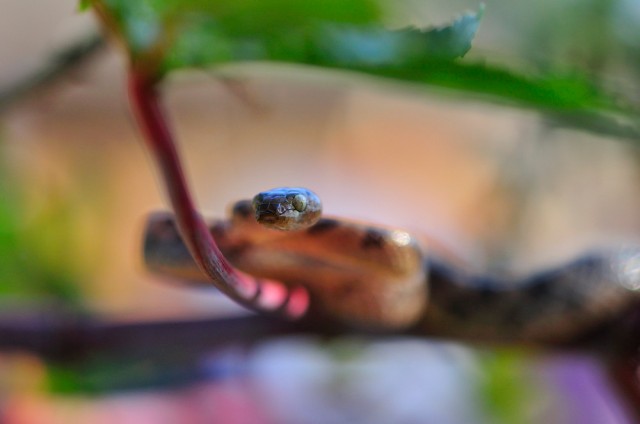
He adopts a typical tree snake pose
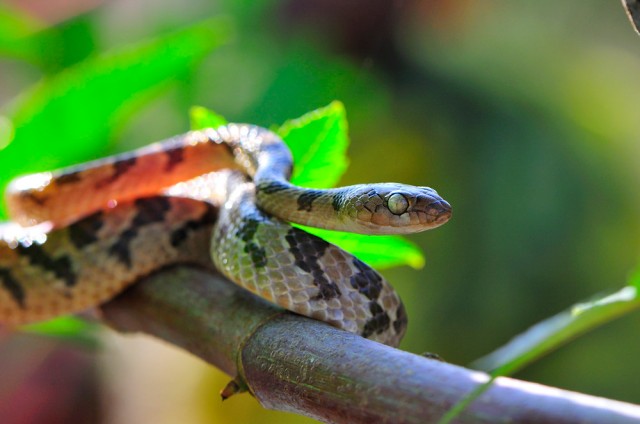
The light was very difficult to work on this occasion

And then he wouldn't stay still

When the light was right, you could almost see through this snake

Moving over leaves

A really active individual - hard to handle, but worth it

He kept approaching me, as the tallest nearby tree-like thing.
The Mouse Meal

A Madagascarophis meridionalis (?) devouring a mouse

Eating back feet first is a common method of consumption

The mouse is long dead by the stage, having been constricted to death during the original attack

The mouse is significantly larger than the head of the snake
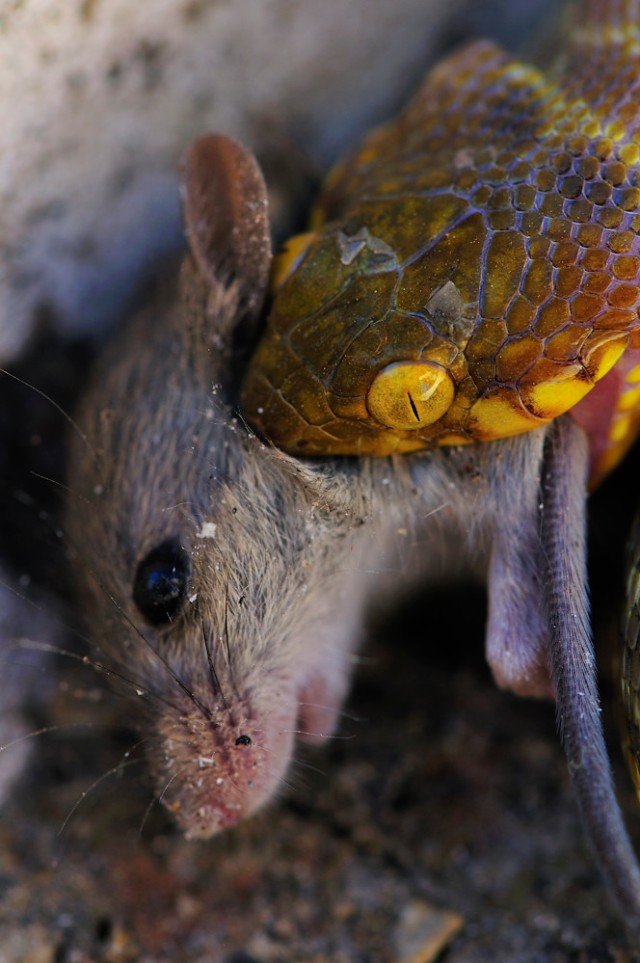
Slowly, the snake progresses down the body of the mouse

Nearly finished the meal

Some fun with the same snake the next day

The tongue flick
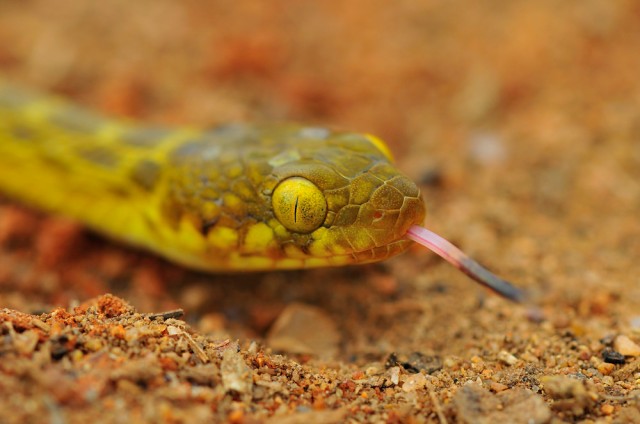
A head macro of the M. meridionalis (?) flicking its tongue out

These snakes rely primarily on smell/taste to sense predators and prey
And one last snake shot:

A new species of snake for our survey - but we failed to catch this one!
And then there were tortoises:

Charlie, the tortoise

A bit of a different view of Charlie
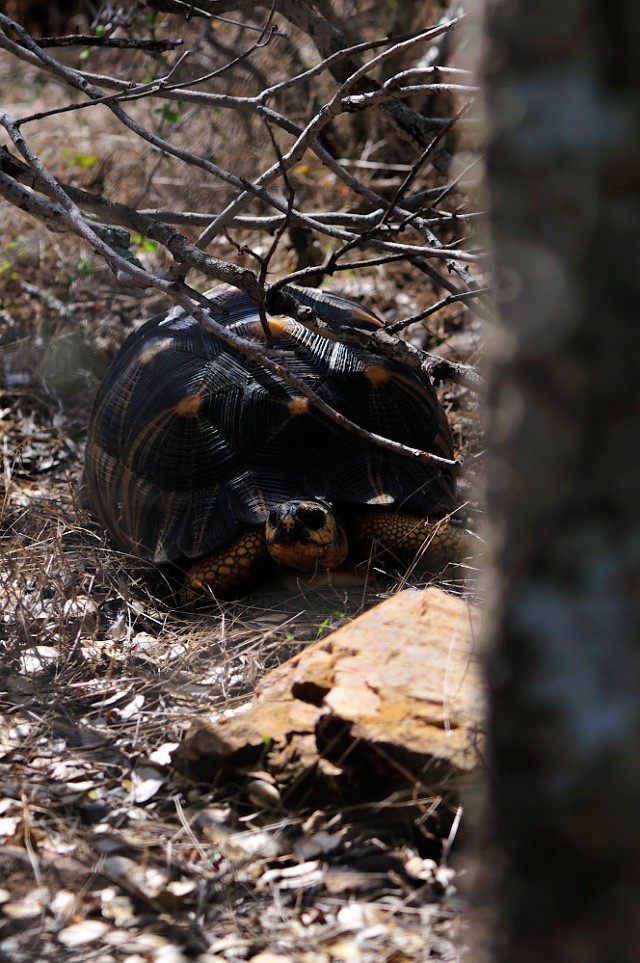
One of the largest tortoises we found
And skinks:

A Trachylepis elegans on a tree - unusual for these typically terrestrial lizards

Lizards are easy to get close to if you know how

Trachylepis aureopunctata, in the log where it was found
And geckos – I tried to do more context shots than I have done before. I think it went well:

Hemidactylus mercatorius on a tree in the forest

Geckolepis typica, in its day-time roost

A Phelsuma mutabilis at rest on a tree

A male P. mutabilis on its family tree
And, of course, chameleons:
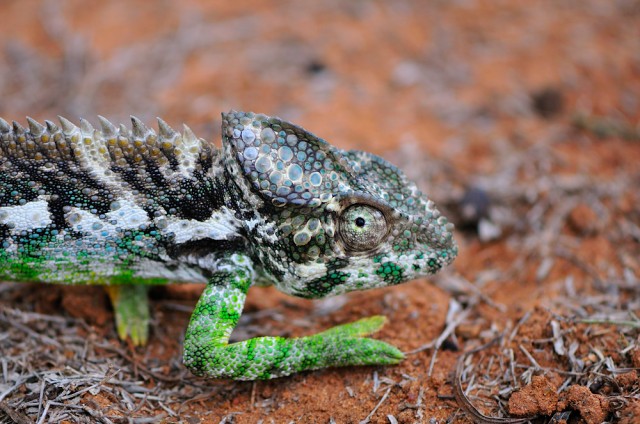
The biggest chameleon we found. An enormous male
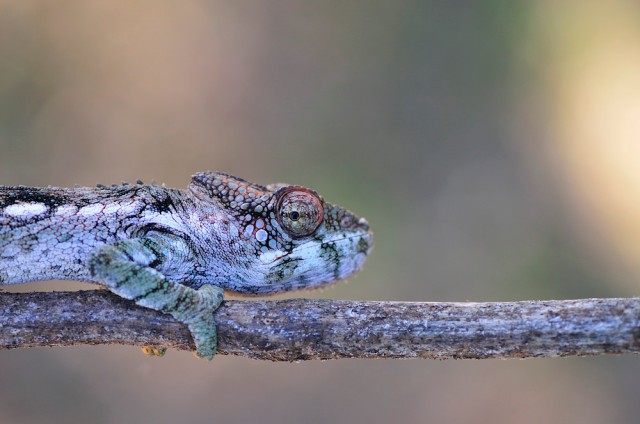
A young male spiny chameleon
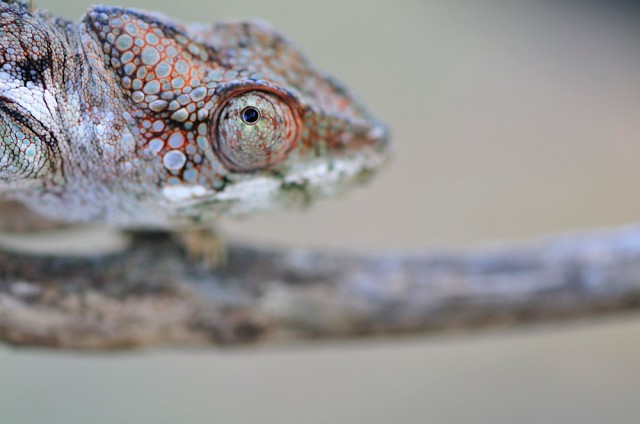
A chameleon stares at me through the lens

These usually bland coloured chameleons can be quite colourful sometimes
Like this:
Like Loading...
Related









































perfect 🙂
I am a bit frightened of snakes, but the pics are nice 😀
ah, no need to be afraid of most snakes! Especially those in Madagascar. They just have to treated with the respect they deserve.
Plenty of nice shots there.
Thanks! 😀
How DO you get close to a lizard? I can never get close enough before they scurry off from me and my camera..
That, Stella, is an excellent question. I will devote a blog to it, if you can stand to wait a week or so? about time I give some updates anyways!
That would be awesome, thanks! Any tip would be welcome!